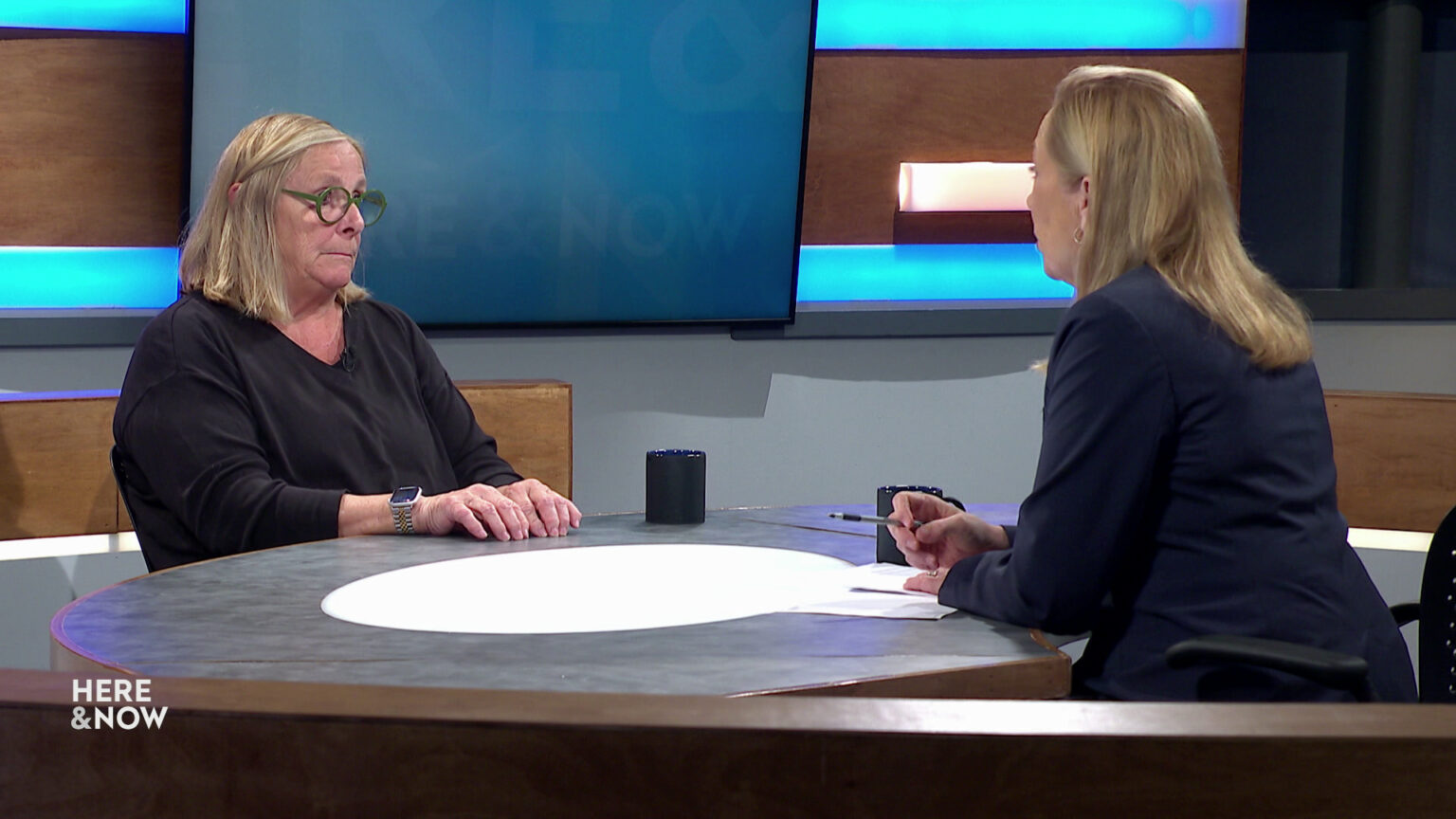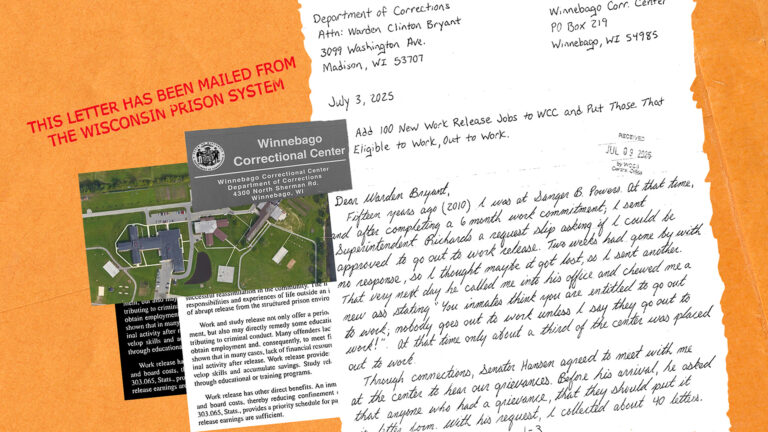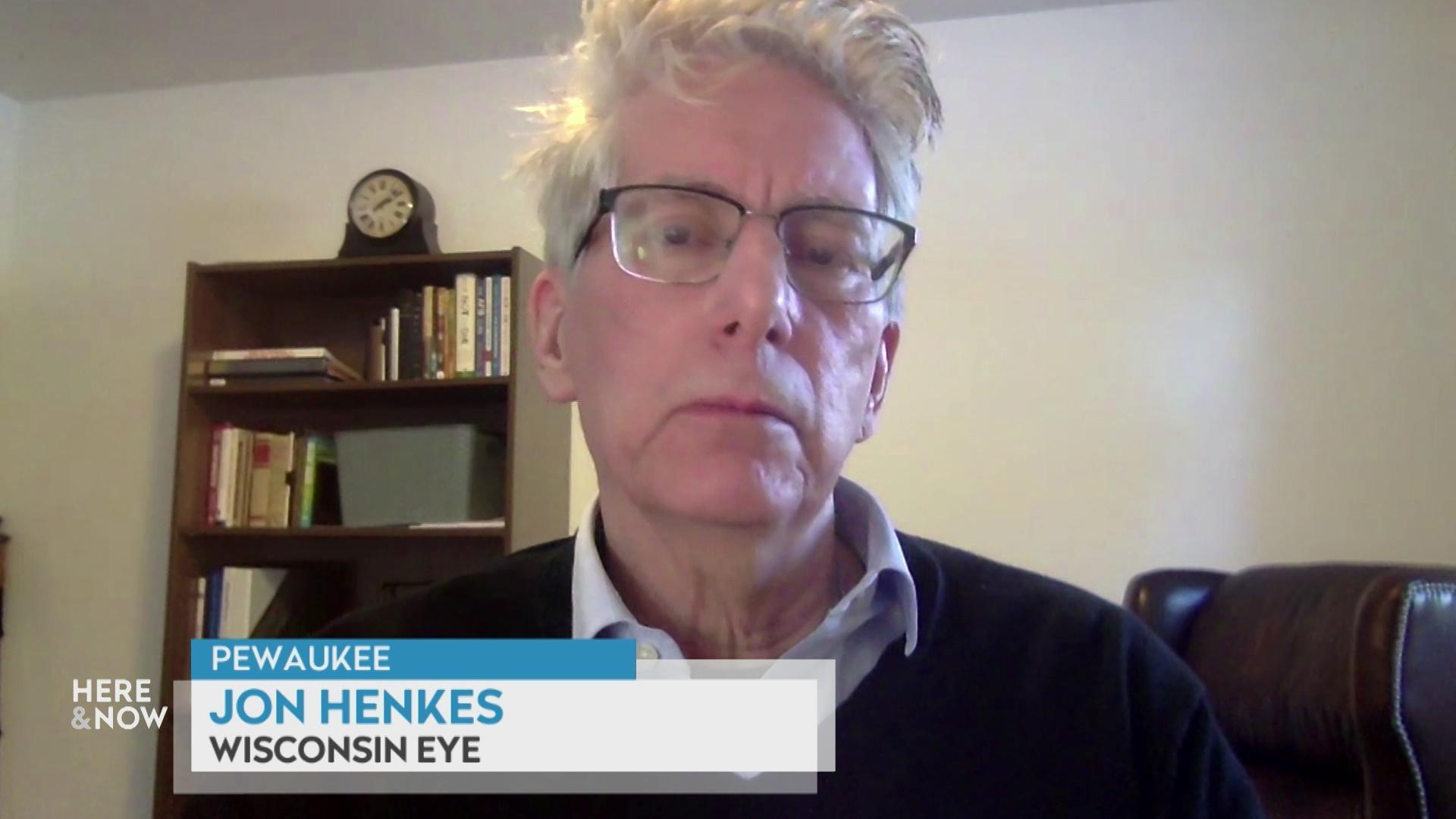'Here & Now' Highlights: Kit Kerschensteiner, Barbara Bowers
Here's what guests on the Aug. 2, 2024 episode said about how voters with disabilities can acquire absentee ballots and the state of nursing home care in Wisconsin.
By Frederica Freyberg | Here & Now
August 5, 2024

Frederica Freyberg and Kit Kerschensteiner (Credit: PBS Wisconsin)
Wisconsin election clerks will now have to make sure voters with disabilities can request absentee ballots via email with a Dane County court ruling, described as a partial victory by Kit Kerschensteiner of Disability Rights Wisconsin. The growing number of nonprofit nursing homes being sold to for-profit companies is prompting concern over quality of care — Barbara Bowers of the Center for Aging Research and Education describes factors contributing to this trend.
Kit Kerschensteiner
Director of legal and advocacy services, Disability Rights Wisconsin
- In the midst of legal proceedings over allowing voters who self-certify that they cannot read or mark a paper ballot without help to request an absentee ballot by email, a Dane County judge ruled that access can proceed for the November election. Kerschensteiner said her organization wants these voters with disabilities to also be able to return their ballots by email.
- Kerschensteiner: “It’s a good first step. It’s not the total solution because this was a temporary injunction. We didn’t ask for all the relief. We don’t have the time to fix what needs to be fixed between now and November. So the suit will continue past November. We’re hoping to get a way for people with print disabilities, which can be either due to vision issues or physical disabilities, that need help casting a ballot. We’re hoping that they can get a way to get an absentee ballot electronically sent to them. They can mark it with their devices, and it can be electronically returned.”
Barbara Bowers
Founding director, Center for Aging Research at UW-Madison School of Nursing
- There is a nationwide trend of non-profit nursing homes being sold to for-profit entities, generating concerns about effects on the quality of care for their residents. Bowers acknowledged these shifts and enumerated her concerns.
- Bowers: “Part of the question is why the not for profits are getting out of the business. There is an issue with general reimbursement from state and federal agencies, and that would be mostly Medicare and Medicaid. There’s simply not enough money put into the system to provide the kind of care — both quality of care and quality of life for people. That’s part of it. So if you want to take an organization that doesn’t have enough money to begin with in terms of the reimbursement level and make a profit, you’ve got to get it from somewhere. And what we’ve seen is that where it comes from is largely labor.”
Watch new episodes of Here & Now at 7:30 p.m. on Fridays.
 Passport
Passport











Follow Us